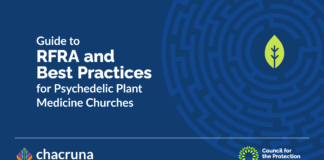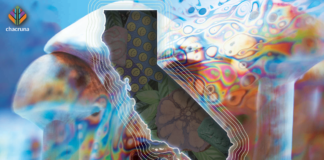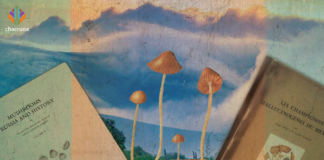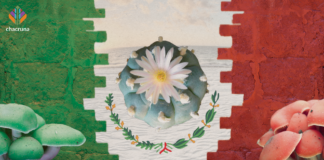Co-Creating a Psychedelic Commons: A Commoner’s Guide
This article takes a look at the controversies surrounding patenting psychedelics by analyzing the history of patents as a whole and applying this to the quickly emerging decriminalization and legalization of psychedelics. Chris Byrnes & Graham Pechenik delve into current policies taking place and describe the potential pros and evident cons of patents in psychedelics.
Calling on Federal, State, and Local Governments to Protect and Respect...
This resolution, which was put together by the National Congress of American Indians Executive Committee, puts forth policies that have been in place in regards to Native Americans and the sacred use of peyote, as well as resolutions they are putting forth regarding their opposition of the legalization and decriminalization of Peyote at the federal, state, and local government levels.
Warning: Oregon Legalized Supported Adult Use of Psilocybin, Not Psychedelic Therapy
This article explains Measure 109 and the structure that is being molded to ensure the safe use of psilocybin by adults in Oregon. Though the use of psilocybin is often associated with mental health and psychedelic-assisted therapy, Oregon will be using a method called “supported adult use” which is very different from therapy. This article explains the differences.
Psilocybin Mushroom Policy Review Panel: 2021 Comprehensive Report
This comprehensive report, which was prepared for the Denver City Council Finance & Governance Committee, provides tools for educating the public on the history, use, research, training, and safety surrounding the use of psilocybin mushrooms. This was put together following the approval of Initiative 301 in Denver.
Guide to RFRA and Best Practices for Psychedelic Plant Medicine Churches
Chacruna Institute for Psychedelic Plant Medicines & Hoots, A. (2021). Guide to RFRA and Best Practices for Psychedelic Plant Medicine Churches. San Francisco, CA: Chacruna...
Community Alert! Arrests and Encounters with Law Enforcement are Increasing
This is a community alert about the seizures of sacred plants and arrests by law enforcement that have been increasing across the US, most of which have been in religious and ceremonial settings of indigenous peoples. Chacruna is taking action to provide free education, resources, and support of other organizations who are also advocating for the protection of sacred plants.
Controversies Around California’s Psychedelic Decriminalization Law Senate Bill 519
https://youtu.be/BnaYwqsxkbk
Now, the California legislature is on the verge of becoming the first legislative body to fully decriminalize several psychedelic substances.
The psychedelic revolution is in...
Can Coca Leaf Avoid the Wrongs of The Psychedelic Revolution?
On August 25, 2020, a proposal presented in Colombia’s Congress to regulate coca and its derivatives, including cocaine, made history. This article dispels the equation of coca and cocaine; highlights the sacredness of the plant to Indigenous Americas; analyzes the underlying questions of the legislative proposal; and discusses the new economic models and regulation of coca.
Psilocybin Mushrooms in Mexico in Danger of Extinction
One of the psychoactive mushrooms described by Gordon Wasson in LIFE magazine (1957) is today an endangered species. This article describes how mycologists located the fungus Conocybe siligeneoides in the Sierra Mazateca of Oaxaca (Mexico).
Two Projects Seek to Change the Legal Status of Peyote and...
Mexico is currently debating ritual and traditional uses, as well as non-Indigenous and therapeutic uses of entheogens. During the past year, two legal reform proposals have been introduced to Mexico’s drug policy reform landscape. One of which is focused on the reclassification of psilocybin mushrooms and peyote, and the second is a request for legal consumption of the same sacred plants. This article describes the initiatives’ intentions, analyzes the proposals’ impact on the landscape for drug reform, and highlights the importance of a multicultural and human rights perspective, especially for the protection of Indigenous peoples’ rights.














